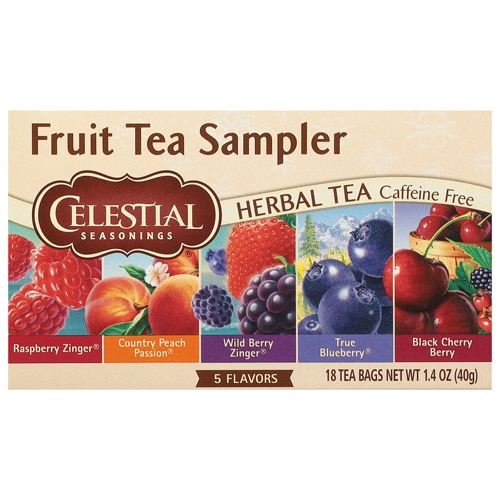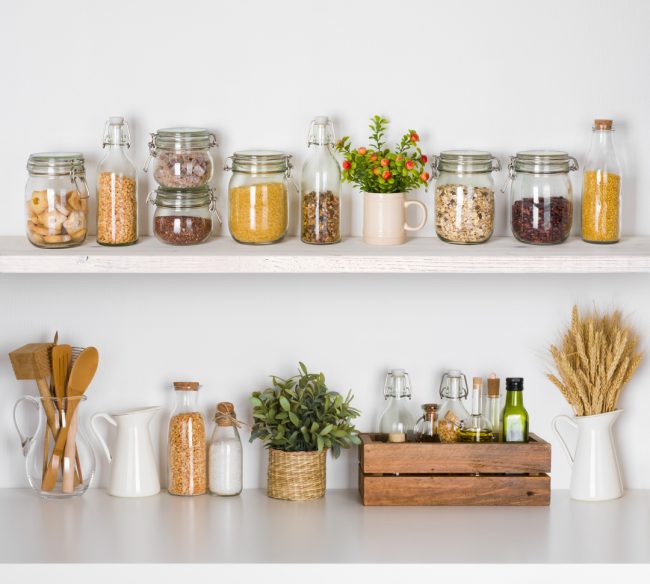The health benefits of a plant-based diet continue to grow in popularity and become more well-known each passing year. This is a huge step for many people in their journey to embrace eating more real, whole foods such as fruits, vegetables and whole grains while avoiding processed foods.
Yet those who are new to eating more plants or embracing a fully plant-based diet may wonder how to make healthy versions of their old familiar spring and summertime favorites. Fall and winter are easy: soups and stews are simple to make with plant-based ingredients, especially with the use of a slow-cooker (vegan 3-bean vegetable soup, anyone?) and an assortment of vegetables and plant proteins such as lentils or black beans.
But what about spring and summer when the neighbors are firing up their grill outside or having cookouts with chips, soda, hamburgers and hotdogs? How does one prepare for the warmer months while filling their body with plants?
The answer? A well-stocked plant-based pantry!
While a well-stocked fridge is essential to eating fresh foods during the springtime months, there are many nutritious pantry staples that can help you enjoy spring (and summer) eats to their full potential without relying on animal ingredients.
Check out these 10 must-have ingredients not to deprive your pantry of this spring:
1. Grill-worthy herbs and spices
Zucchini, squash, portobello mushrooms, onions, eggplant and many other sturdy summer veggies can all be seasoned with some herbs and spices and grilled to perfection. Tofu and tempeh can also be seasoned and grilled just like veggies for some high-quality plant protein.
Some great herbs and spices to initially stock up on are oregano, basil, black pepper, salt-free all-purpose seasoning, garlic and onion powder and some smoked paprika just to name a handful.
2. Quinoa for pilafs and grain salads
Quinoa is a quick-cooking, complete plant-based protein that makes delicious and refreshing pilafs or grain and veggie salads! Quinoa pairs well with cucumber, tomato, avocado, fresh mint or basil, black pepper, lemon juice and even grilled zucchini.
You can choose from red, white or black quinoa depending on how you want your salads to look visually, although they’re all the same nutritionally speaking no matter what kind of quinoa you choose.
3. Bottled lemon juice
There’s nothing quite like fresh lemon juice to season a salad or marinate some veggies with when you’re looking for a healthy way to flavor your dishes.
But let’s be honest—not everyone keeps fresh lemons on hand all the time. Storing a bottle of organic lemon juice is a great way to ensure you have a better-for-you back-up option.
Sure, it’s not as fresh as a real lemon, but at least it’s free of artificial preservatives unlike the yellow bottles of lemon juice sold at the store.
4. Bulgur
Bulgur is pre-cooked, parboiled wheat berries and an incredible source of protein, iron and other minerals like magnesium. Bulgur is particularly great for spring because it cooks up in a flash just like quinoa. It’s perfect to use for chilled grain and veggie salads, pilafs and tabbouleh, the popular Middle Eastern dish it’s typically used in.
Bulgur is also satisfying and light, so it’s easy to digest yet also filling. It keeps well in the pantry, and like oatmeal, bulgur can last for months as long as it’s well-sealed so you’ll be well-prepared anytime you want a quick and easy meal.
5. Tahini
Tahini (sesame seed butter) is full of iron and protein and it’s a well-known do-it-all spread that can be used to make creamy dairy-free sauces and salad dressings. It has a mellow, earthy flavor which makes it perfect for using in springtime hummus recipes, cucumber and tomato sandwiches, homemade veggie dips or spreads, and it can be even used alone as a healthier alternative to sour cream or mayo.
Just be sure to store opened jars of tahini in the fridge to preserve it longer as you would jars of natural nut butter.
6. Pickles
While opened pickles should also be kept in the fridge, unopened jars of pickles can be kept for months (and sometimes even a couple years) in your pantry before use.
Natural, organic jarred pickles (free of artificial colors and dyes) are a healthy way to season a springtime salad. You can also add them to a grilled veggie burger, use them in a dip, or just eat them for a healthy snack.
Another bonus? Pickles are also a great source of natural probiotics to keep your gut healthy too!
7. Hemp Seeds
Hemp seeds (or hemp hearts) are one of the best complete sources of protein and are incredible sources of iron, magnesium, fiber, omega-3s and antioxidants. They’re light, earthy, and perfect for salads, dips, smoothies and spreads.
Hemp seeds are a great way to sneak in some plant-based protein into any meal without having to rely on heavier, cooked options that are typically enjoyed in soups and stews. You can also keep hemp seeds in a cool pantry for a couple of months, but chances are you’ll eat them all way before then!
8. Raw apple cider vinegar
This is the go-to elixir for just about everything including tummy woes, a cold or inflammation. Apple cider vinegar also happens to be the perfect light and healthy seasoning option too!
Raw apple cider vinegar is full of flavor so it can be used with a little lemon juice and black pepper to make a light and healthy salad dressing (or marinade) that you can use on anything from veggies to veggie burgers, salads, pilafs and more.
If you’ll be reaching for ACV for its health benefits, choose one with “mother” so you get all the good-for-you probiotics and anti-inflammatory benefits that apple cider vinegar is known for.
9. Shelf-stable unsweetened almond milk
Don’t ever let your pantry be without a couple cartons of unsweetened non-dairy milk so you’ll be prepared in case your refrigerated almond milks runs out. This way, you’ll have a plan B when it comes to making that healthy colors-of-spring fruit smoothie.
While you’ll need to store them in the fridge once opened, shelf-stable cartons are perfect to keep around for last minute emergencies and smoothie sessions.
Choose unsweetened vanilla almond milk for fruit and green smoothies, and use the plain version for dairy-free sauces, dressings, or other savory recipes.
10. Herbal fruit teas
Herbal fruit teas are a fantastic, and refreshing, replacement to sugary fruity drinks that have artificial dyes and colors or refined sugar. Kids and adults will both love to have these beverages around. Prepare a large batch of fruity hibiscus tea or refreshing mint tea, keep it in the fridge in a large pitcher, and serve it nice and cold over ice just like lemonade or traditional fruit drinks that are full of sugar.
Herbal fruit teas can even be frozen and enjoyed as ice pops or used as a base for oatmeal and smoothies.
Remember, being prepared for spring while following a plant-based diet is just as easy as it is during the cooler months. It just takes a bit of thought, a touch of creativity and some healthy pantry essentials!
To snag all of these items at one convenient place, visit vitacost.com.
Or... click the funky lime-green button below:





